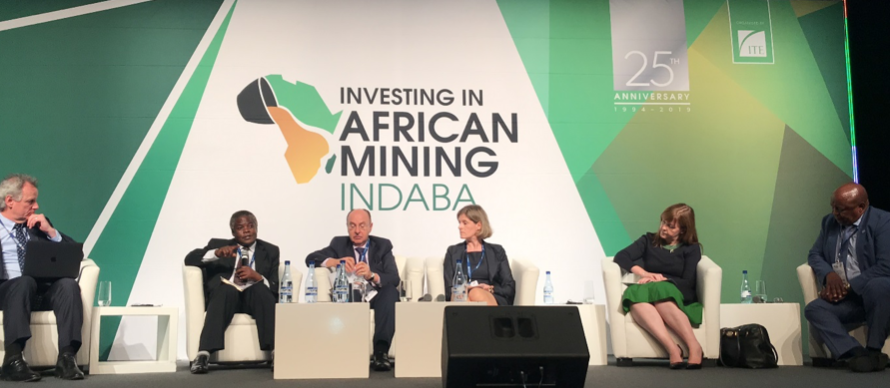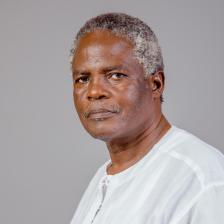
Governments, Companies Find a Bit of Common Ground on Resource Nationalism at Indaba
Over the past decade at least, “resource nationalism” has been a hotly debated concept for those in the oil, gas and mining industries, government decision-makers and media who cover the space.
It was also a main theme at this year’s Mining Indaba. Some interpreted debates at Indaba as precursors for more fighting between government and companies. But we are encouraged by what we saw as good dialogue. Diverse parties voiced interest in finding a sustainable, long-term balance between corporate and government interests.
Industry recognized that companies had aggravated mistrust by doing a poor job at recognizing the drivers and concerns behind policy reforms labeled as resource nationalistic.
“Companies have pushed it too far with discounts and incentives. They haven’t understood that in the end the resource belongs to the people and they need to see benefits,” Peter Breese, CEO of Asanko Gold, said.
According to one definition, policies of resource nationalism—in contrast to outright nationalization—encompass higher royalties and taxes, increased government free carry participation, requirements for in-country beneficiation and retention of profits, and participation of local employees and businesses in the value chains of oil, gas and mining.
Governments across the globe have undertaken such measures. Indonesia required foreign investors to divest parts of mining equity to nationals and banned raw mineral exports. It has been reported that Mexico is suspending new oil auctions to private companies, contrary to the energy reform under the previous government.
Since the booming mineral prices of the past decade, many countries have made ambitious, quick changes. The Democratic Republic of Congo’s 2018 mining code amendments set a super profit tax and increased royalties, up to 10 percent for strategic minerals. Zambia has changed its fiscal regime following each copper price swing since 2000, making budget stability harder to achieve. Local content requirements have been increased in South Africa’s new Mining Charter and in Tanzania.
Companies oppose recent policy changes by Africa’s major mineral producers because these changes risk lowering rates of return on investment. Reactions can be strong. In the DRC, companies lobbied aggressively against revising the country’s mining code, escalating into threats of arbitration, but ultimately lost the battle. Meanwhile, some governments in Africa are questioning the legitimacy of existing agreements and fiscal stabilization clauses.
A policy touted as resource nationalistic in one case might not be labelled similarly in another. Botswana’s domestic processing of diamonds—often cited as a success story of resource-based development—is a case in point.
 NRGI’s Africa Co-Director Silas Olan’g (second from left) speaks during a panel on taxation, revenue management and resource nationalism at Mining Indaba. Photo by Kaisa Toroskainen.
NRGI’s Africa Co-Director Silas Olan’g (second from left) speaks during a panel on taxation, revenue management and resource nationalism at Mining Indaba. Photo by Kaisa Toroskainen.
Throughout the Indaba, we saw government representatives demanding companies make greater contributions to host countries. Instead of only insisting on a greater government take, many emphasized “win-win” situations and committed to consultation and transparency in policy reform. Guinea’s minister for mines and geology underlined the importance of being upfront about government expectations, in line with a recent interview with NRGI. Transparent government intentions is a tenet of success, Botswana’s minister for mineral resources acknowledged. Ghana’s president urged the continent to leave the era of incentives behind, but also committed to disclosing Ghana’s mineral development agreements.
Anglo American and Goldfields, among other companies, called for more collaborative, inclusive and beneficial relationships with communities. Newmont’s vice president of sustainability and external relations framed the solutions with language of shared value and rebuilding trust.
NRGI, too, has highlighted that any reform process needs to be transparent and consultative to build trust and legitimacy. Findings from NRGI’s work across the continent show that by using analytical methods such as economic modeling and disclosing assumptions of the models, governments can design balanced policies that endure booms and busts. Modeling helps governments prioritize in case of trade-offs between objectives such as taxes, employment or domestic beneficiation, helping manage expectations.
But it is easier to debate congenially and even to write good laws than to implement them. Action is needed. Companies should take concrete steps to report on taxes and payments they make to governments at all levels. They should disclose information needed to analyze profitability of their operations and opportunities for local development. Governments should act on their promises for transparency and accountability by engaging in meaningful consultations, publishing contracts, fiscal models and information on environmental and social impacts. All should commit to long-term stability over short-term wins.
Kaisa Toroskainen is an Africa program officer with the Natural Resource Governance Institute (NRGI). Silas Olan’g is Africa co-director with NRGI.
Authors


Silas Olan'g
Africa Energy Transition Advisor